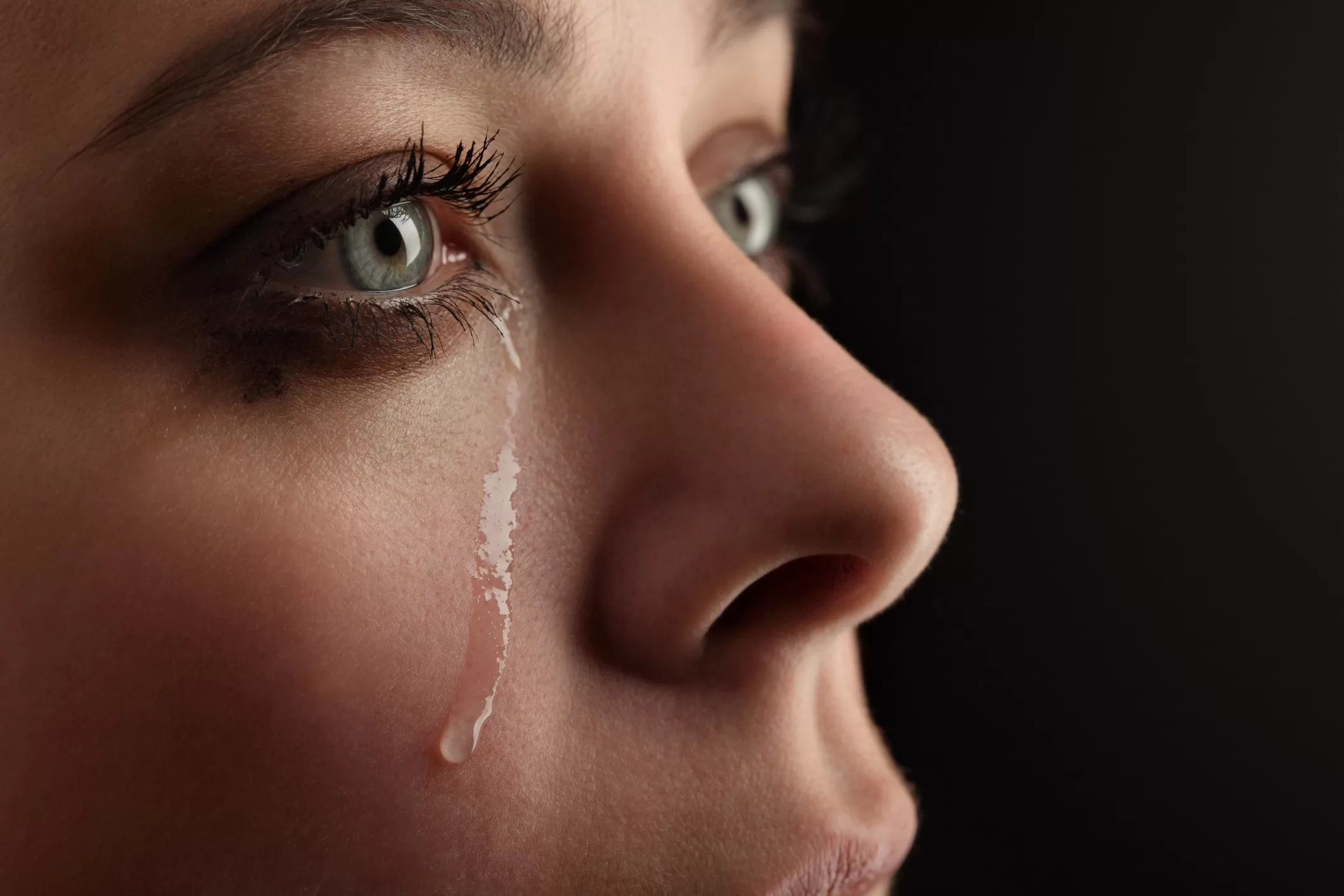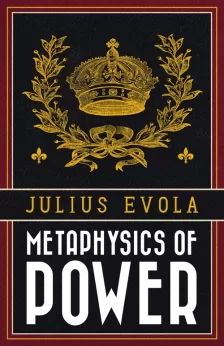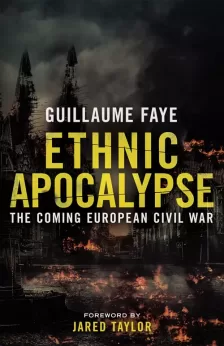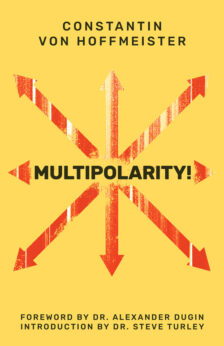The levelling and depersonalising plague which has brought low our modern civilisation has aspects which are so complex and tentacular that not everyone is able to recognise it behind its various masks, so as to oppose each of its forms with a decisive revolt and a conscious reaction.
And thus it is a fact that the by now almost irreparable compromise of those differences in caste, in nature and in internal dignity which formed the principle of every healthy traditional organisation leads to no good end. In aiming to bring every value under the law of quantity and of the anonymity of the mere social collective, this contaminating ideology now desires that, after the levelling wrought between man and man, we proceed now to that between gender and gender; it sees in this a ‘conquest’, a sign of ‘progress’. From the very same anti-hierarchical and anti-qualitative origin of many forms of modern degenerescence, we now see feminism emerging as if in a retching action; it is taking shape in two countries which have become almost like the two jaws of a single pair of closing vicegrips, from the East and from the West, around ancient Europe: Soviet Russia and America. For the Bolshevik equality of woman and man in all aspects of social life finds its perfect reflection in the emancipation which has already been carried out for some time now on the other side of the ocean.
Here we are not speaking from a spirit of personal aversion, nor of the prejudices of an epoch or of a people. In the feminist phenomenon we find a symptom which can be connected through careful logic to many others, and which indicates the advent of a conception through which the very ideal of ‘culture’, of civilisation, above all in the classical traditional sense, is dealt a mortal blow.
The fundamental meaning of every civilisation was that of a victory of form over the formless, of the ‘cosmos’ over the ‘chaos’. Thus, at the centre of the classical vision of life and of the State we characteristically find precisely the cult and the valorisation of the limit, of the form, of difference, of the clear personality. The world is ‘cosmos’ and not ‘chaos’ to the extent that it, like a harmonious living organism, is constituted by a whole of finite parts, each of which has a precise function, proper nature, in carrying its individuation ever deeper, thus rendering the great body of the whole richer, more various and determinate.
Our best traditions always set this valorisation of difference, of the limit, of individuation against all evasionistic and pantheistic visions, which posit the good to lie in the impersonal, in the undifferentiated, so that they almost understand being an individual as a fault or a punishment. Thus they established the principle through which a hierarchical order could arise, on the basis of the natural differences between the beings, and constitute itself in the gens, in the city, in the state and, at the extreme, in the Empire.
At present, nothing is ‘itself’; no natural being is ‘itself’. But this condition of ‘intermixing’, which was traditionally recognised to ‘the things below’, was always considered to be a condition of imperfection, and the task was given to institutional norms, to morality, and finally to ascesis to overcome it and to clarify distinct types, genres, classes and individuals — precisely as the artist draws his figures from formless material. Such was the traditional concept of culture or civilisation: form — let us say it again — victorious over ‘chaos’.
* * *
It is altogether evident what a contradiction of this point of view is constituted by the principles of egalitarianism, mindless fraternalism, pallid humanitarianism and impersonal universalism, which, in various forms, wind through the modern world, undermining not only the concepts of society, of the state, of right, but even the ideals of knowing and acting. Returning to our point of departure, the spirit and the face of modern feminism is equally clear on this basis, so far as its particular applications are concerned.
So far as the genders go, feminism, in its demand for equality, subscribes to the view according to which every difference and every distance is to be held an evil. It would abolish the specificity of functions and types, it would tend to something uniform, which, however, we will not say lies (as is believed) ‘beyond’, but rather ‘within’, individuation and the differentiation of the sexes. The result is precisely either the altogether new neutral and Amazonic type of American women and of the sportive European garçonnes — or else the presexual, camaraderie-communist promiscuity which is so characteristic of the Slavic race, established today by the Bolshevik Zag: that promiscuity which almost tempts us to say that the Slavic sexual relationship is only rarely detached from a certain incestuous tinge. These are the two possible conclusions — either uniformistic (standardised) or ‘mystical’ (promiscuous-communist) — of anti-difference.
Precisely where our morality would command to man and to woman to be ever more themselves, to express ever more decisively and daringly that which makes the one man and the other woman — precisely here, these retch-like movements press backwards. They adulate the developmental stage in which difference no longer exists — and in this they even make the claim of envisioning an ‘evolution’ of which our ‘antiquated’ minds would not be capable of following.
The truth is rather that at the bottom of feminism there hides a ‘radical pessimism’: that is, the tacit premise that woman ‘as woman’ cannot find value in herself, for which she must, insofar as she can, make herself into a man, claim the same social and intellectual prerogatives of man. In this sense, we call it pessimism: the presumed feminist ‘vindication’ of woman conceals an abdication of modern woman, her impotence, or her mistrust, at being and at having value as that which she is: as woman, and not as man. It conceals in short a degeneration, in the most rigorous sense of the term. To which, moreover, modern man analogously brutalises himself into a purely physical and animal ideal — at most, a pallidly intellectual one — which represents his own decline from the zenith forms of life, which consecrated his effective ‘virility’, to which corresponded in our greatest traditions the two highest castes of the social hierarchy: that of the ‘Ascetics’ and that of the ‘Warriors’.
It is as woman — and not as man — that woman realises herself, elevates herself to the same level as man as Ascetic and as Warrior insofar as she is ‘Lover’ or ‘Mother’. To us, the lineage of every value is one and the same: heroism, the overcoming of oneself. But there is an active heroism and a negative heroism: there is the heroism of absolute affirmation and there is the heroism of absolute obedience — there is the heroism of absolute affirmation and there is the heroism of absolute dedication, which each stand in an identical light and at an identical level of greatness.
Thus, this differentiation decrees the natural difference of ways toward interior consummation for man and for woman. To the gesture of the Warrior and of the Ascetic who pass from life to a ‘more than life’, the one by means of pure action and the other by means of a clear and virile renunciation, ideally corresponds in woman the heroism of the leap to be wholly for another being — to give herself wholly to another being, be he the man whom she loves and who is her Lord (the type of the ‘Lover’), or be it her child (the type of the ‘Mother’) — finding in this the sense of her life, her own joy, her own justification and liberation. And in realising oneself ever more intensely and luminously according to these two distinct and unmistakable directions of heroism, attenuating everything in man that is woman and everything in woman that is man — in this stands the internal rule which can give form and order according to nature and spirit.
The modern world, on the other hand, with its boxeurs, with its fanatics of passion and of the most wretched ambitions, with its goldmongers and car salesmen and chauffeurs in the place of the Ascetics and the Warriors — or, on the other side, with its garçonnes, with its working girls and its ‘intellectuals’, its ‘girls’ and all the other forms of naturalised women forced pathetically into the crossroads of public life and of modern corruption — this modern world proceeds at a running pace in precisely the opposite direction of the above ideal. But this cannot help but be accompanied by the twilight of love itself in the deepest, ‘organic’ sense, a phenomenon connected in turn to the biological destiny of the races itself: for love, like electricity and magnetism, is based on polarity. It is all the stronger and more creative the more decisive is the polarity, the differentiation of the types and of the sexes: absolute woman and absolute man, without intermediary forms.
In the world of the ‘evolved’, ‘emancipated’ and conscious woman, one might find the promiscuity of an equivocal camaraderie or of pallid intellectual sympathies; there might be encounters of pleasure, just as one might accord to a game of ‘bridge’ — but there cannot be love in its true and elementary sense, in which the ancients saw the manifestation of an originating and awesome force and a cosmic significance. Just as social egalitarianism has killed the ancient, living, virile relations between man and man, between warrior and warrior, between Lord and subject — so pure feminist egalitarianism will lead us ever more toward an insipid and perverted world in which, perhaps — as can already be seen in the banal exhibitionism of American women — women can ‘even’ seem chaste, so as not to so much as brush the complications of sinfulness.









I didn’t know Evola dug into feminism so deeply. He is on point, as always.
When Evola was alive feminism was only 1% of the monster it has become.
He clearly saw its destiny, but I still think he would be surprised and horrified at how far feminism has gone.
We are in a bizarre, sick world where feminism doesn’t even really defend or advance women when they are faced by men who claim to be women. It is a transparently evil, destructive ideology.
I am glad Arktos is dedicating space to addressing this extremely serious threat to our people’s future.